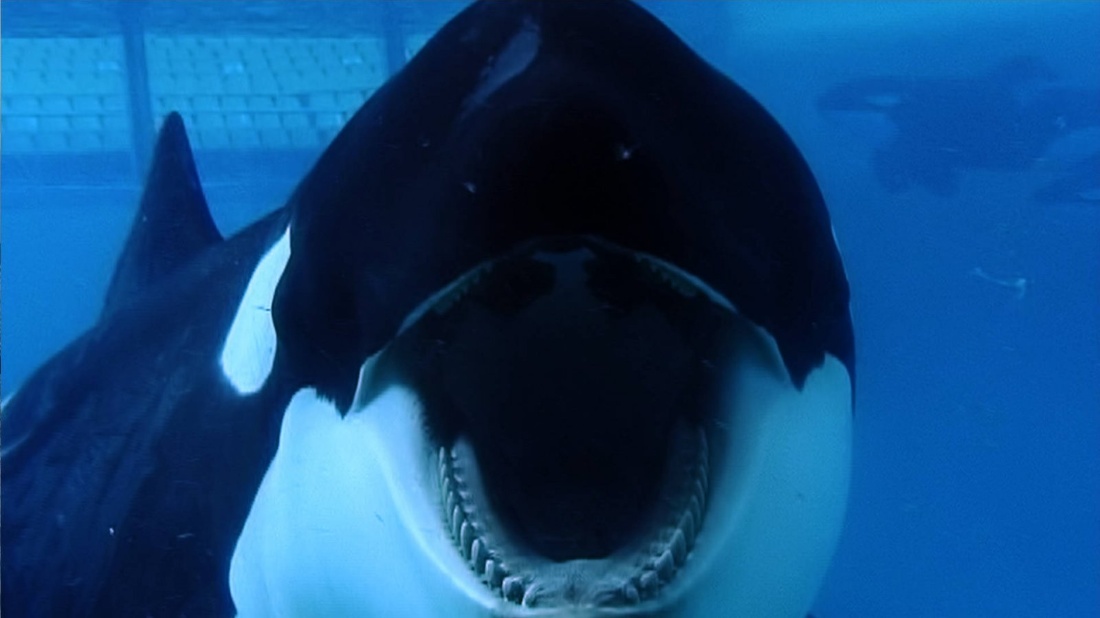
San Diego theme park SeaWorld recently suffered a great deal of negative press thanks to Blackfish, a documentary investigating the deaths of several trainers at the hands… er, fins of an allegedly mistreated orca. I am not here to defend or contradict the sentiments of the filmmakers. You can check out the documentary yourself if you’d like to form an opinion (turn on CNN and there’s an 80% chance that it’s on right now). I am here solely to discuss SeaWorld’s response to the film and how it serves as an object lesson of how NOT to use social media when dealing with controversy.
I am not suggesting that SeaWorld should have ignored Blackfish. It’s not like the film was just going to go away (again, turn on CNN — I’ll bet you $100 worth of Bed Bath and Beyond coupons that it’s on right now). But they definitely should’ve consulted with someone, ANYONE, before launching this poorly-thought-out sponsored Twitter campaign.
Blackfish is propaganda. Learn the truth about our killer whale care at https://t.co/oPPsnw6QDT pic.twitter.com/nxBrxa12Cz
— SeaWorld (@SeaWorld) February 10, 2014
Yes, that’s right, they called Blackfish “propaganda.” This is a film with a 98% Fresh Tomatometer rating. Not only was it a modest success at the box office, it was dinner table discussion for months. Whether SeaWorld likes it or not, Blackfish is already part of the zeitgeist. And by likening the filmmakers to Joseph Goebbels, SeaWorld was insulting anyone who thought the film warranted serious discussion – which was, apparently, a great deal of people.
So how did the internet-at-large respond to this inflammatory claim being shoved down their virtual throats, i.e. at the top of their Twitter feeds? Unsurprisingly, with a great deal of snark and contempt.
“Finally watched #blackfish followed by @SeaWorld’s pathetic show of tweets. Give it up, Seaworld. Just, stop. #animalslavery”
— Cinne Parmentier (@CinneParmentier) February 16, 2014
Lol at the promoted @SeaWorld tweets on my timeline. Really trying to make up for the damage Blackfish did, huh?
— David Blowie (@xCoreyDunnx) February 20, 2014
Looks like @SeaWorld has dumped a ton of money into pushing anti #Blackfish propaganda on Twitter. Don’t forget there’s a SPAM button. 😉
— Anonymous (@YourAnonNews) February 15, 2014
Does the @SeaWorld account ever just like, advertise their park? Nonstop damage control seems counterproductive.
— Brian Collins (@BrianWCollins) February 16, 2014
Writer Alan Spencer, creator of the brilliant TV shows Sledgehammer and Bullet In the Face, responded with a slew of hilarious tweets such as this one.
I love how #SeaWorld is on a PR offensive. They dip their trainers in tartar sauce.
— Alan Spencer (@MrAlanSpencer) January 27, 2014
And full disclosure, I also got in on the action:
.@SeaWorld Propaganda for the powerful whale lobby? The Orca National Socialist Party? The Sea Mammal Illuminati?
— Collyn McCoy (@collynmccoy) February 10, 2014
Granted, I was doing it for comedy reasons. But also because I found the idea of calling Blackfish “propaganda” ludicrous. Disagree with the filmmakers’ conclusions if you like, discredit their sources and question their editorial process if you can, but hyperbolically calling the film something it’s not comes off as unreasonably defensive. To paraphrase the Bard, methinks the theme park doth protest too much.
Say what you will about British Petroleum, but their response to the Gulf oil spill was smart. They took responsibility, focused on the work they were doing to solve the problem and later, shed light on their positive contributions to the Gulf. Sure, they killed a million sea creatures, but at least they took a positive spin with their PR battle plan instead of trying to blame the fish.
But the larger lesson here is, know how the internet works. A tweet going viral for the wrong reasons — such as this one — does a lot more damage than damage control.